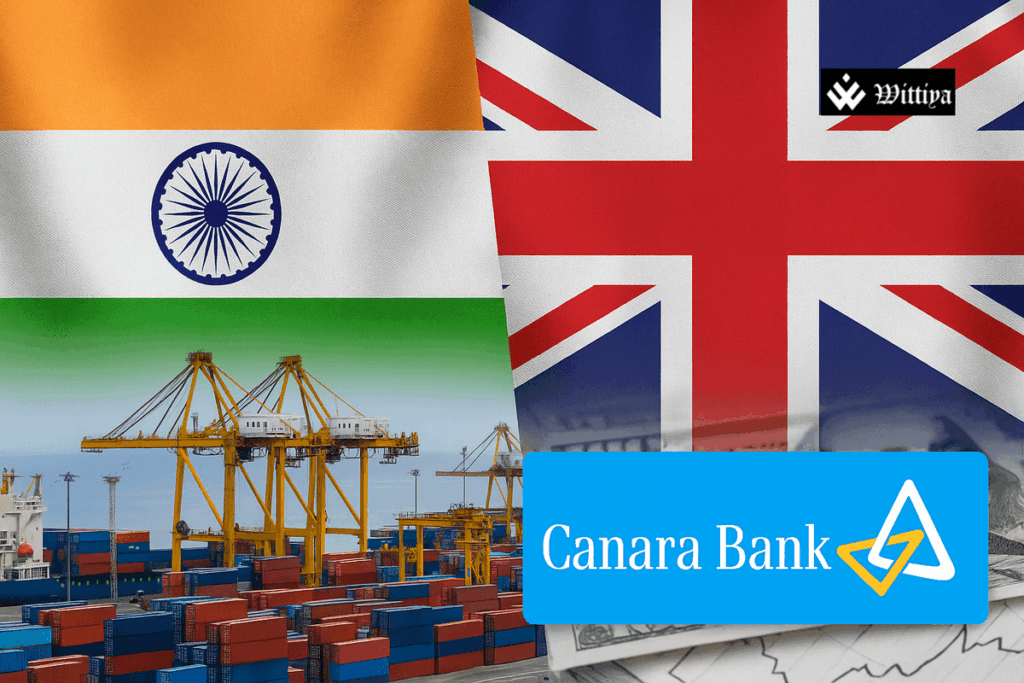After the successful conclusion of the India–UK Free Trade Agreement (FTA), a report by Canara Bank India highlights the importance of enforcing stringent rules of origin and verifying local content to prevent the backdoor entry of Chinese goods. While the agreement offers India duty-free access on 99% of UK tariff lines, concerns remain over possible misuse unless tighter regulations are put in place.
Canara Bank, a leading public sector bank headquartered in Bengaluru, Karnataka, has called for the implementation of stringent local content requirements in the recently signed India–United Kingdom Free Trade Agreement (FTA). The bank’s economic research division has emphasized the need for strict verification of goods’ origins to prevent the indirect entry of Chinese goods into Indian and UK markets under the guise of duty-free trade.
The India–UK FTA, hailed as a significant diplomatic and economic victory for India, grants duty-free access to Indian exports across 99% of the UK’s tariff lines. However, the Canara Bank report, published on May 13, 2025, warns that without robust rules of origin, this achievement could be compromised. It highlights the risk of Chinese products entering markets under relaxed terms, potentially undercutting genuine Indian exports.
The report recommends that all traded goods must meet a minimum threshold of local content to ensure they are not merely repackaged or minimally processed items from third-party countries like China. “It has to be ensured that goods traded between the UK and India have sufficient local content to foolproof from Chinese goods finding their way to take advantage of lower duties,” the report stated.
Canara Bank’s analysis also pointed out the strategic exclusion of sensitive sectors such as agriculture and dairy from the agreement. These sectors have historically remained contentious in India’s trade negotiations, including with the European Union and Australia. Any concessions in these areas in future FTAs, the report warns, could dilute the benefits secured in the UK deal.
Furthermore, the agreement mandates reciprocal treatment in sectors like financial services, reflecting a balanced and mutually beneficial approach. However, the bank underscores the importance of vigilant enforcement, noting that even a well-negotiated agreement can be undermined by regulatory loopholes.
With India seeking to become a more prominent global trade player, the Canara Bank report concludes that domestic safeguards are just as important as international market access. The emphasis on origin verification and local content will be key to preserving the integrity of such agreements and shielding Indian producers from unfair competition.
